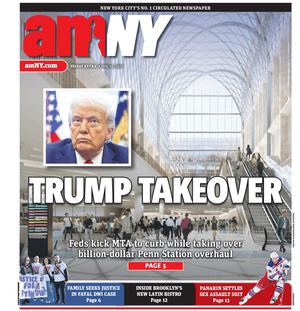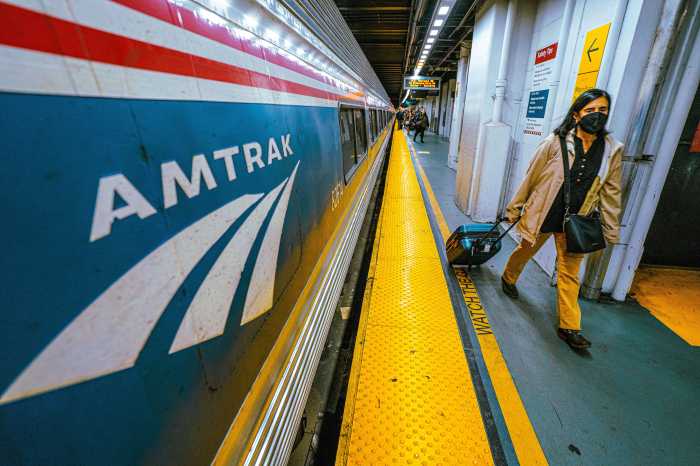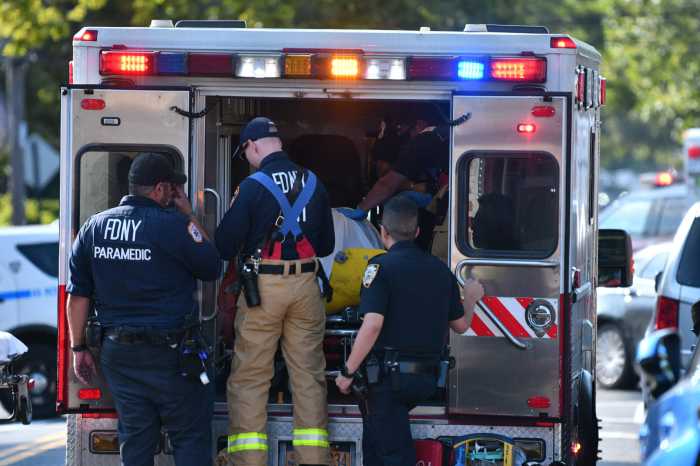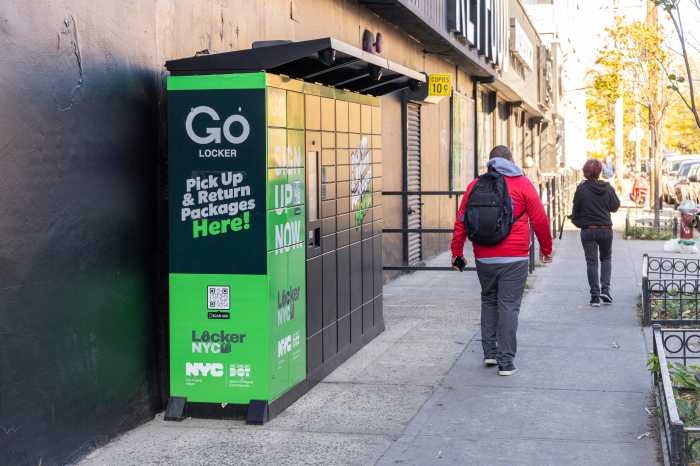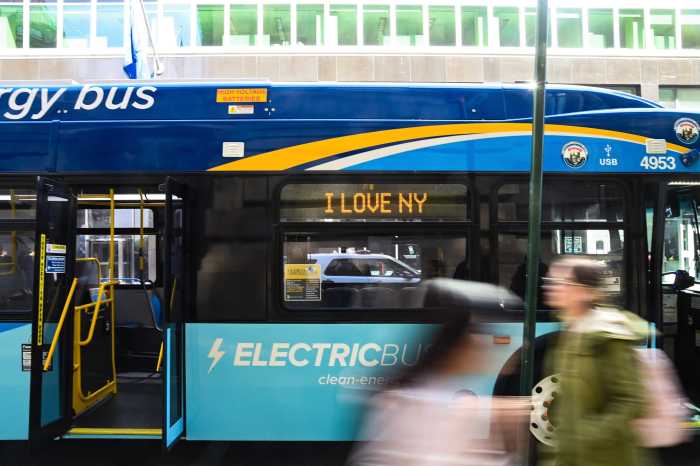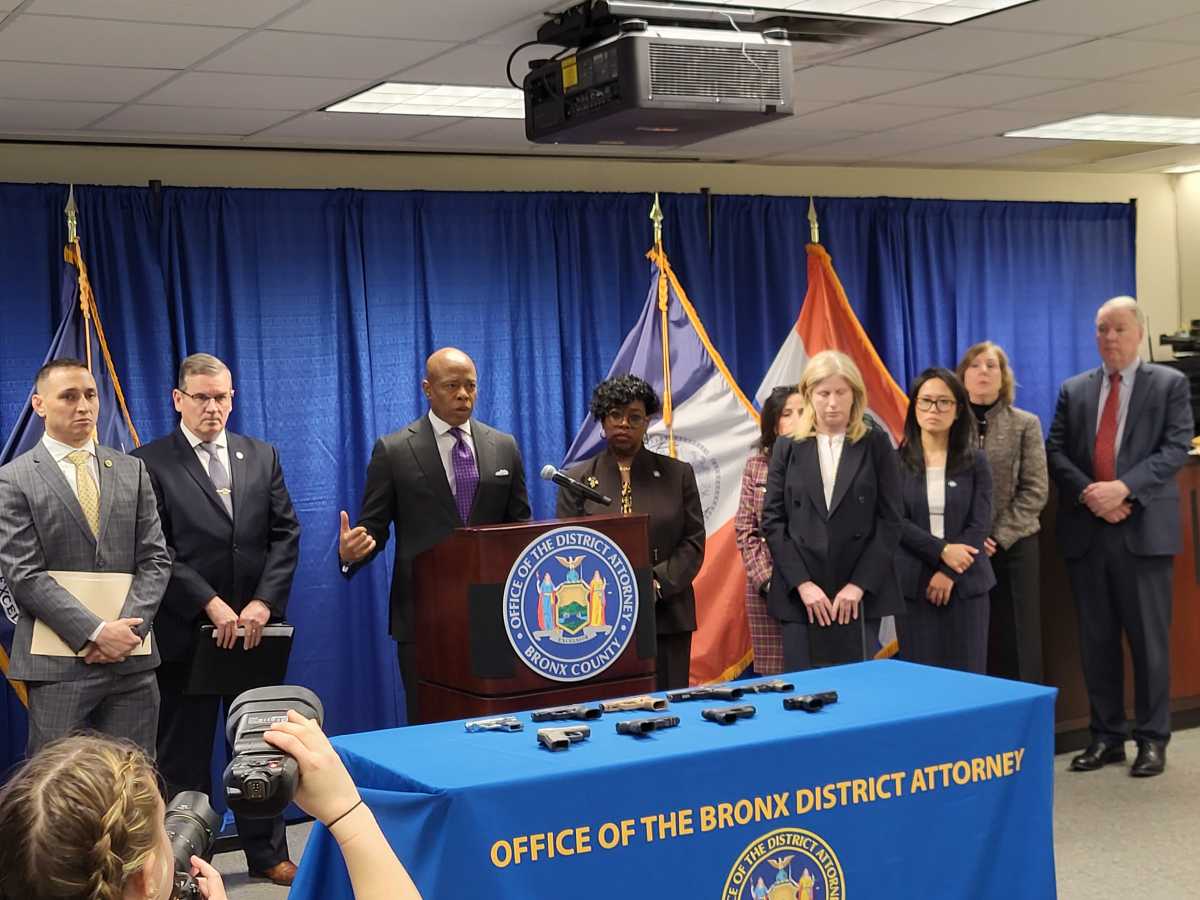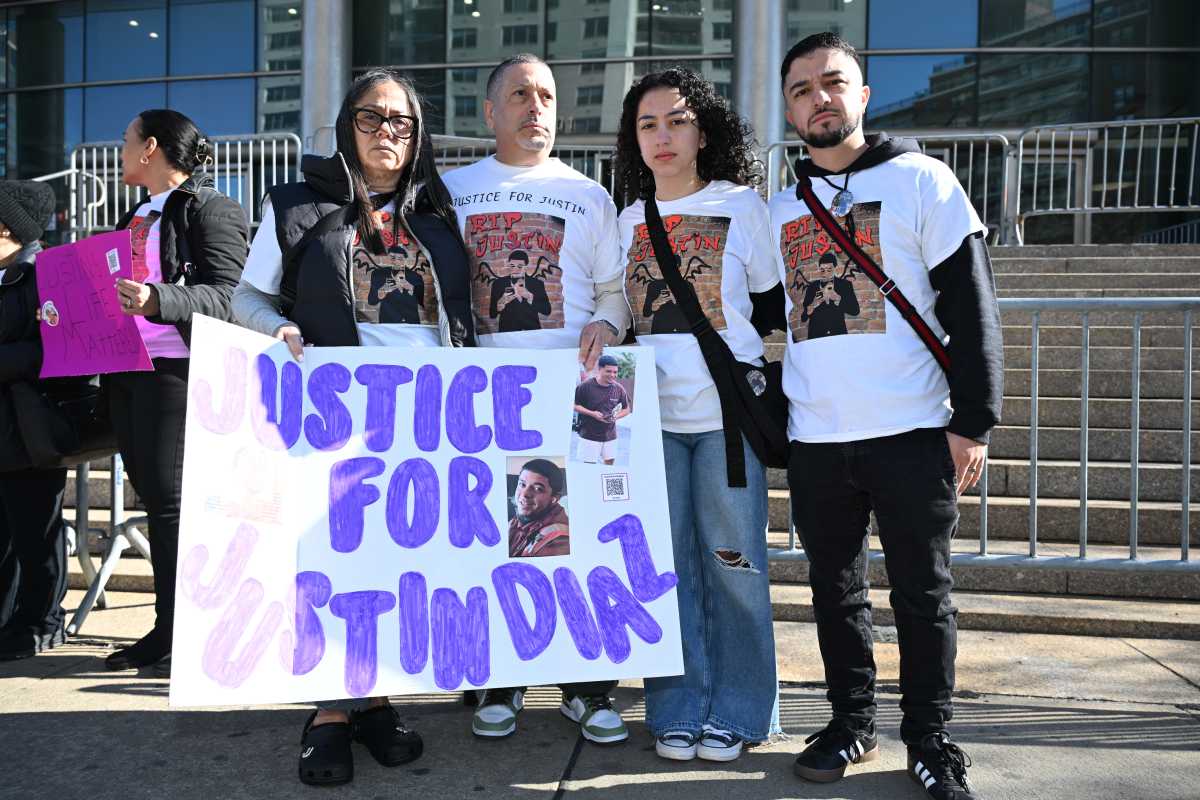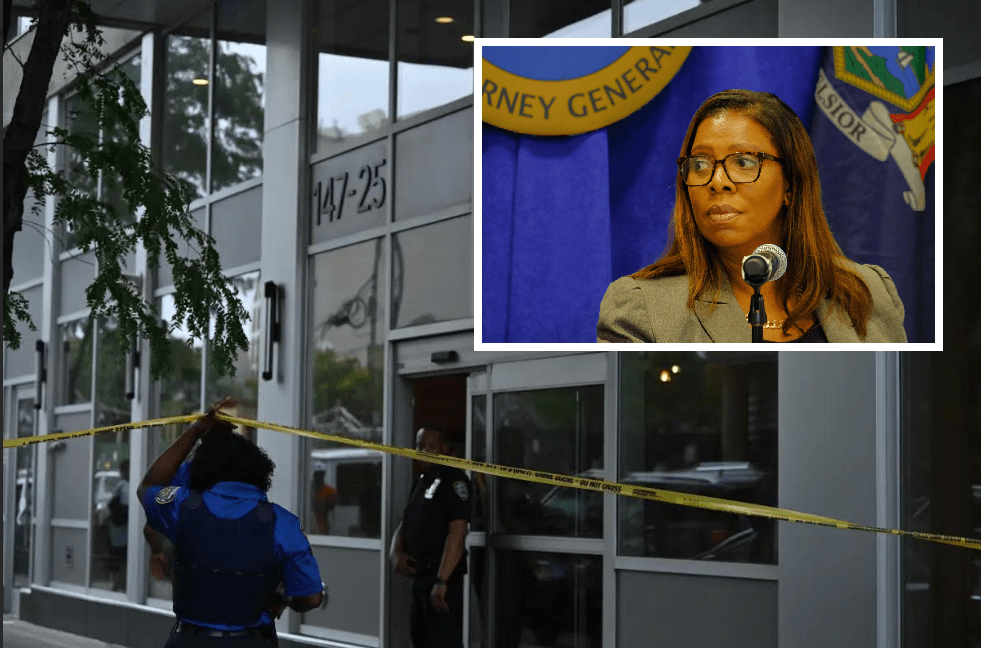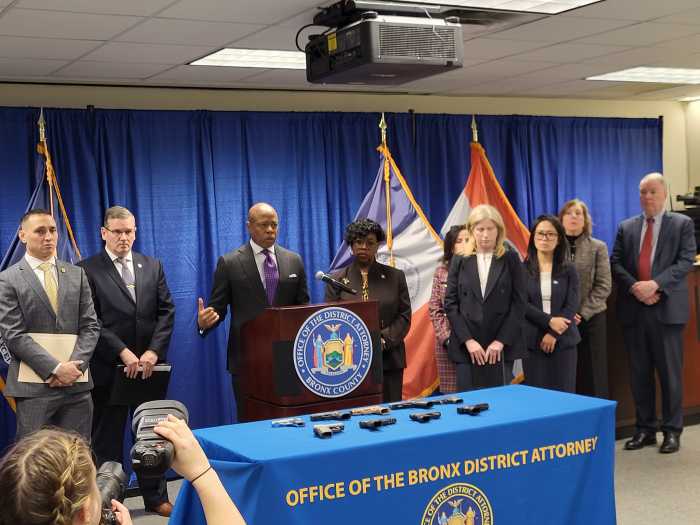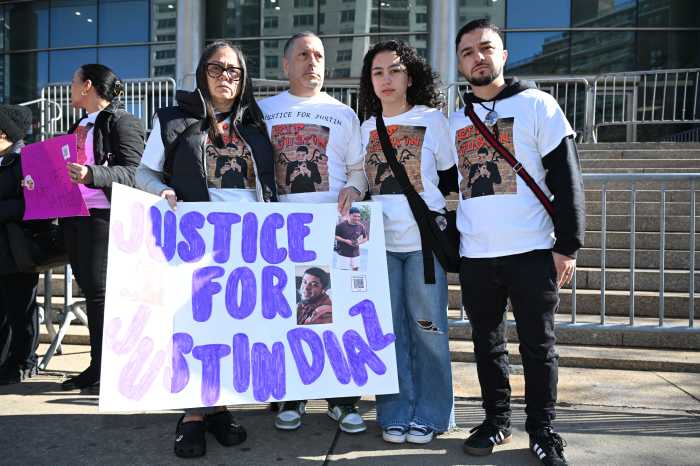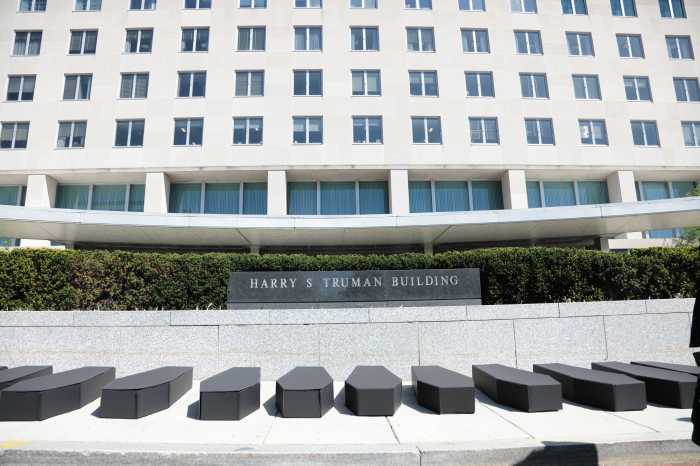
City Council Speaker Corey Johnson on Tuesday unveiled his proposal to bring the MTA’s subways and buses under city control as part of a larger vision for New York transit policy.
The speaker, who repeated a need to “break the car culture” in the city, announced at his first State of the City address his proposal to create what he calls the BAT — the Big Apple Transit system. It was the centerpiece of a speech that focused exclusively on transportation, and pitched wide-ranging policies on the basis that mobility is key to social and economic justice.
“I believe with all my heart that a comprehensive transit vision, combined with municipal control of the subways and buses, will take us as a city where we need to go,” said Johnson, who has publicly considered running for mayor in 2021, during the event in LaGuardia Community College. “This is a progressive issue. It always has been.”
The BAT network, headed by the mayor and a new board, would incorporate several agencies currently under control of the state-run MTA: The subways, its local buses, bridges and tunnels and the Staten Island Railway.
The concept did not come with a timeline, and would depend on authorization from state lawmakers, the governor and mayor. Johnson acknowledged the transfer of control “won’t be easy,” but argued it was the best way out of the MTA’s service failures and financial crisis through better accountability and transparency.
“Do you know the real reason our commute is awful? Because the MTA exists in a vacuum of accountability,” he said. “But it doesn’t have to be that way. We can fix this. It all starts with control.”
While some around the city have backed the idea, others, including Mayor Bill de Blasio, fear the city could not absorb such a massive transit network. The mayor earlier this year warned that such a transfer would come with “tremendous transitional challenges” in voicing his support of reorganizing the MTA in its current form. The agencies that would be transferred currently staff more than 55,000 employees.
His BAT proposal was accompanied by a 103-page report issued after his speech. The report, titled "Let’s Go," offered more details on financing BAT as well as other ideas for city streets — more street plazas; more protected bike lanes and bus lanes; and reforms to curbside parking policies for commercial loading zones.
The speaker wants the city to more closely study the rehabilitation of the Brooklyn-Queens Expressway, to explore removing it entirely, and said he planned to introduce legislation requiring the Department of Transportation to create five-year “master plans” for city streets.

Ultimately, Johnson’s report implored the city to cut private car ownership in half by 2050.
“We need to think seriously about how we share space on our streets,” he continued. “Cars cannot continue to rule the road. It is not safe and it is not sustainable.”
Under Johnson’s proposal, BAT would receive outside funding through a mix of congestion pricing and taxes — taxes for which the state would have to grant the city local taxing authority. A new “mobility czar” position would be created at the deputy mayor level to oversee BAT, the DOT and the Taxi & Limousine Commission. Johnson’s report said if the state fails to pass congestion pricing, City Council members “are prepared” to pass their own version, an idea that had previously been debated at the city’s legislative body.
In terms of cost control, Johnson floated reforms through changes to labor work rules and MTA’s current procurement and bidding processes. He offered support to continue pursuing the MTA’s widely respected but still unfunded Fast Forward plan, a 10-year blueprint to modernize transit service.
“We don’t even talk about real expansion anymore,” he said. “It’s too expensive to even entertain, and it will remain that way until we rein in construction costs.”
The proposal clashes with plans from Gov. Andrew Cuomo who effectively controls the MTA. Cuomo and de Blasio last week unveiled their own 10-point plan to fund and reform the authority through the state budget due April 1, which includes a congestion pricing proposal, among other funding and organizational reforms.
"A city takeover of the subways is a worthy discussion that in a best-case scenario would take years to achieve," said mayoral spokesman Eric Phillips. "While he appreciates the Speaker’s transit vision and contribution, the Mayor is focused on immediate actions to fix the broken subway system. Our subways are in the middle of a crisis that needs an immediate solution. The Mayor stands with millions of riders depending on action right now."
Johnson’s outline comes as the MTA faces dire problems relating to service, construction and finances. MTA officials have warned that it would need multiple new revenue streams to help close a $1 billion budget gap by 2022 and fund a large, forthcoming capital plan that would in part begin the Fast Forward plan.
Amid the funding needs and as subway and bus service drop, there have been some bright spots, namely transit president Andy Byford’s efforts to speed up subway trains. The authority under his direction has begun repairing failing safety equipment and lifting unnecessary speed restrictions in the subways, which it believes could lead to significant service and capacity improvements down the line.
“The MTA’s new leadership team has been working hard to deliver significant service improvement, cost reduction, and general modernization on all fronts," said MTA spokesman Max Young in a statement. "The recent data showing subway performance is at four-year highs, after more than $800 million was provided through the Subway Action Plan, is a perfect example of the type of progress we can achieve with a reliable funding stream. As we continue our serious drive to embrace innovation and contain costs, and numerous other initiatives to reform our business practices, we are laser-focused on the passage of congestion pricing and obtaining the funding we need to deliver the transit system that New Yorkers deserve.”
Experts and advocates warned that effecting municipal control of transit would be a long, long process that is not completely in the city’s hands.
Lisa Daglian, executive director at Permanent Citizens Advisory Committee to the MTA, said her main concern with transferring control of buses and subways was whether the city could generate the revenue — “there’s a lot of questions; there’s not a lot of answers.
“The Funding needs are gigantic. They’re huge, looking at the debt; looking at … some of the legislative ability that would need to come to the city — that’s a long road,” said Daglian, who added that she appreciated Johnson pushing the idea forward.
“Corey makes a lot of great points,” she continued. “The most important thing is to continue the conversation about transit funding and ensuring that the commuter rail lines can also continue to support not just the suburbs but also the city stations, and looking at how capacity can translate into shortening people’s commutes.”
Tuesday’s speech comes as the mayor faces ongoing criticism for being largely out of touch with the daily challenges New Yorkers encounter getting around.
Though de Blasio has experienced success with his Vision Zero initiative, which has driven traffic deaths to historic lows, advocates feel the mayor could be doing more, particularly when it comes to redesigning streets. Johnson feels his city street master plans would help quell some of the community-level backlash that can come with new bike or bus lanes by illustrating how those “neighborhood-specific changes go into a plan for the greater good.”
Jon Orcutt, spokesman at Bike New York and former policy director at the DOT, agreed.
“The idea of a master plan that encompasses pedestrian improvements and bike lanes could be the type of leadership framing that we need to take the temperature down on every little bike lane fight in the city, over every hurricane over every parking space,” he said.
Joe Lhota, the two-time former MTA chairman, said he found Johnson’s pitch refreshing, though he noted he hadn’t had time to read details in the report. Lhota endorsed city control of subways when he ran for mayor in 2013.
“I’m encouraged by what the speaker put forward," Lhota said outside the event after it wrapped up. “It takes time. It’s going to be difficult to do. But what’s refreshing is that somebody stood up in front of a lot of people and just said, ‘hold me accountable.’ I love that.”
